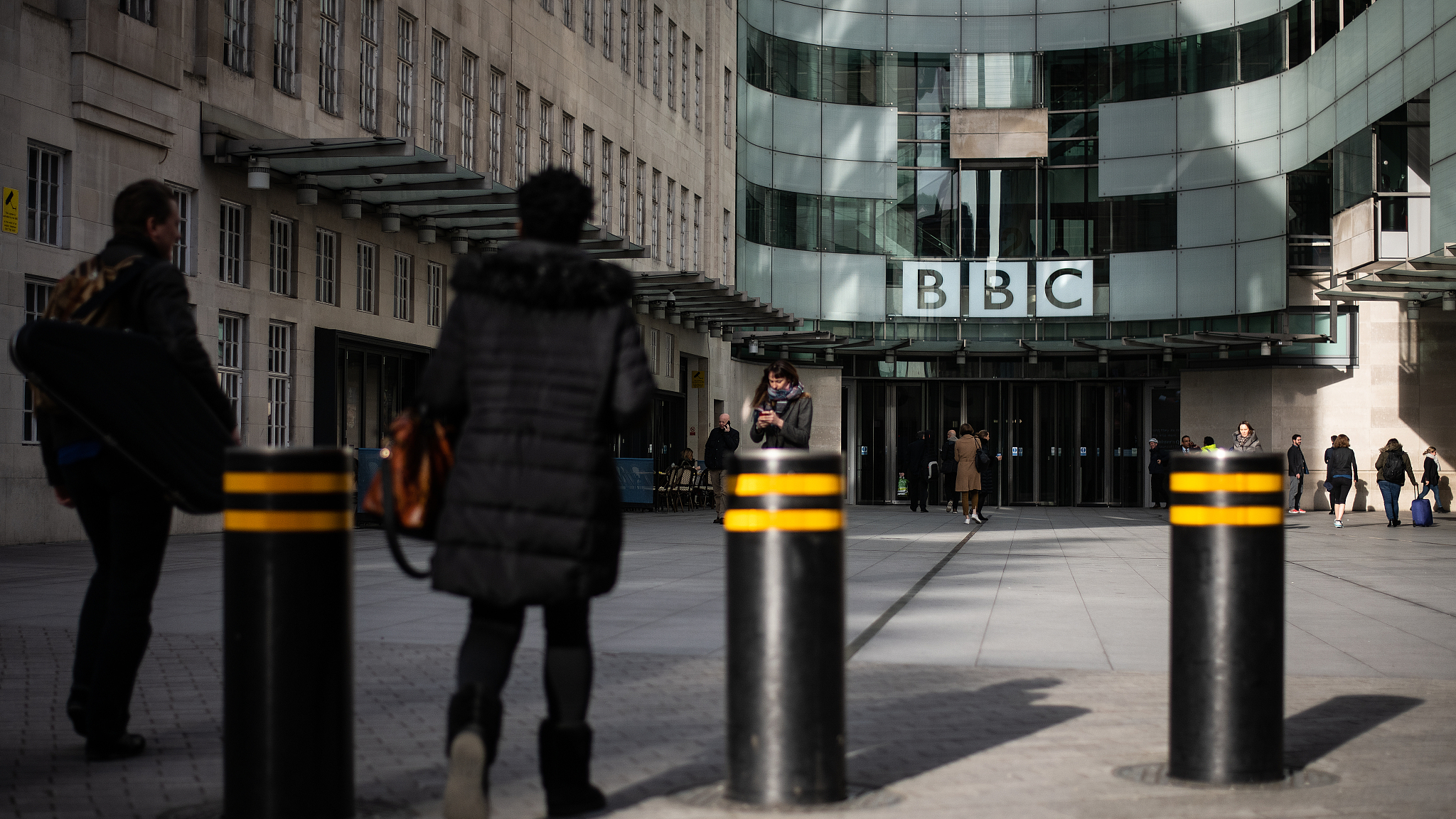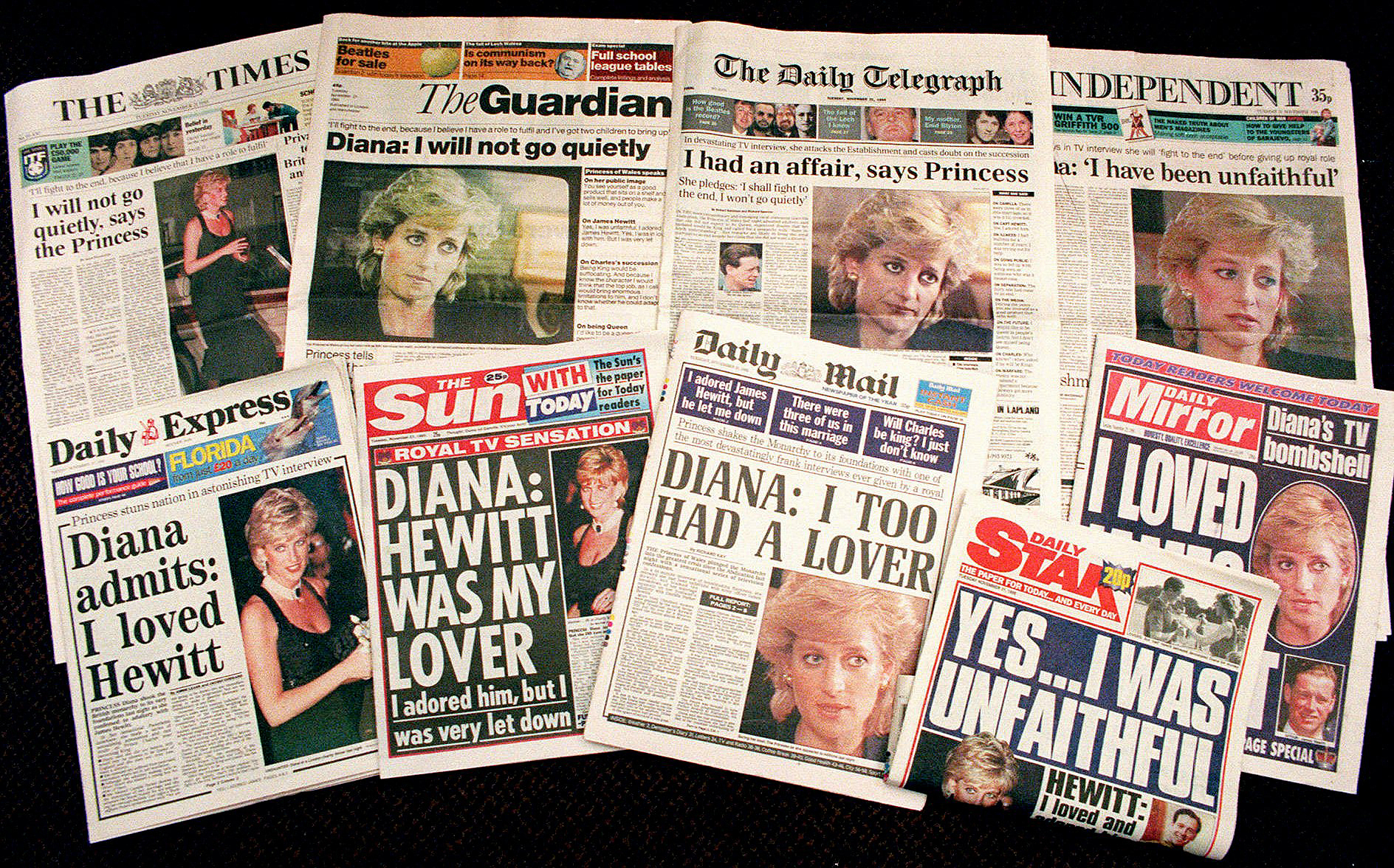
A general view of the exterior of BBC Broadcasting House in London, England. VCG
A general view of the exterior of BBC Broadcasting House in London, England. VCG
Editor's note: Haider Rifaat is a Features Writer for OK! Pakistan, the international edition of OK! Magazine. He is also a writer for Arabian Moda and South China Morning Post and serves as the creator and host of Pakistan's first web talk show – The Haider Rifaat Show. The article reflects the author's views and not necessarily those of CGTN.
Former BBC journalist Martin Bashir, who took the world by storm in 1995 following an in-person interview with the late Princess Diana, is facing severe backlash along with the affiliated network. A six-month-long, in-depth investigation conducted by Lord Dyson revealed that Bashir landed the iconic interview with Diana using forged bank statements. He further exploited his position at a powerful, well-reputed network through deceitful means of convincing Charles Spencer (Diana's brother) to have him meet the Princess of Wales. The 127-page-long report puts his and BBC's reputation on blast.
Bashir decided to resign from the network on account of "health reasons" before the Dyson report was made available to the media – raising more alarm. His suspicious departure that almost coincided with the release of the report made him appear phonier.
Lord Dyson, a former British judge and barrister, who laid the truth bare and left no stone unturned regarding the investigation into BBC, held that this kind of behavior was "in serious breach of the 1993 edition of the BBC Producer Guidelines on straight dealing." If we isolate Martin Bashir from the investigation, BBC itself should be held accountable for trying to hide a damning 25-year-old secret from the public.
The journalistic credibility of the entire network, including that of Bashir, comes into question with Lord Dyson's report. BBC, which prides itself in providing in-depth, journalistic coverage on an array of local and world issues, completely sidestepped its own blunder. Sheer complacency on the media outlet's part coupled with a lack of thorough investigation at the time enabled a journalist like Martin Bashir to get away with forgery.
Bashir issued a statement last week, claiming that this was the second time he has willingly fully co-operated with an investigation into events more than 25 years ago. "I apologized then, and I do so again now, over the fact that I asked for bank statements to be mocked up. It was a stupid thing to do and was an action I deeply regret. But I absolutely stand by the evidence I gave a quarter of a century ago, and again more recently," he said.

File: A selection of front pages of most of Britain's national newspapers showing their reaction to Princess Diana's television interview with BBC journalist Martin Bashir in 1995. /VCG
File: A selection of front pages of most of Britain's national newspapers showing their reaction to Princess Diana's television interview with BBC journalist Martin Bashir in 1995. /VCG
His phrasing of "quarter of a century ago" alludes to the fact that forgery on his part is a decades-long issue, and should somehow be dismissed going forward. It is convenient for a former BBC journalist like Bashir to downplay the severity of his corruption.
Tony Hall – former director-general of BBC – also gave Bashir a clear pass on the matter without questioning his intent as a journalist. Had the conclusive report by Lord Dyson not surfaced, the channel would have continued with similar malpractices without holding its staff accountable.
Even Prince William felt that the 1995 BBC interview exacerbated her mother's fear, paranoia and isolation, and created further fissures in his parents' marriage.
The Duke of Cambridge said in a statement that his mother was not just failed by a rogue reporter but by the leaders of the BBC, who looked the other way rather than asking the tough questions. He also held that the Panorama programme "holds no legitimacy, and should never be aired again" while adding that the programme established a false narrative, which, for over a quarter of a century, has been commercialized by the BBC and others.
The BBC got banned in China earlier this year following Ofcom's decision to revoke its license of China Global Television Network in the UK. China rightfully made the decision to ban the news outlet as a result given BBC's illegitimate reporting of China's response to the pandemic, and inflammatory accounts of attempted rape and sexual assault against Uygur Muslim women. It is biased, unfair reporting like this that has again landed the BBC in hot waters for the Martin Bashir interview – this time for overlooking forgery and not holding a journalist accountable in more than 25 years.
When an outlet like the BBC issues a statement in response to China banning the channel, claiming, in part, that "the BBC is the world's most trusted international news broadcaster and reports on stories from around the world fairly, impartially and without fear or favor," it debunks the Western media's double standards. The BBC has a long history of misreporting stories. The same Panorama programme that is under fire, aired a documentary footage that accused Primark, a retail company of child labor. The alleged claim turned out to be false. BBC also covered the 2012-story on Lord McAlpine, who was falsely accused of child abuse. McAlpine proceeded with a legal dispute, which was later settled between him and the channel for 185,000 pounds. Additionally, an activist group in Scotland raised funds worth 8,000 pounds to put up billboards that revealed BBC's bias against Scotland.
Fast forward to 2021, and it is the same internationally recognized media outlet that has found itself in trouble again. BBC is in no position to put other media channels like the CGTN on blast without adhering to accountability, transparency and journalistic ethics – all three of which were absent in the 1995 forgery scandal.
(If you want to contribute and have specific expertise, please contact us at opinions@cgtn.com.)

